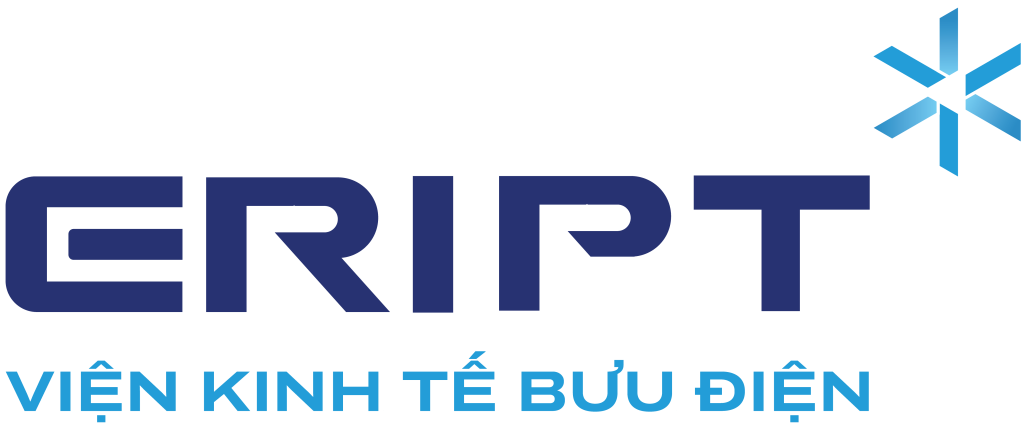| Program name:
Level of Education: Field of Study Mode of Education: |
Electronics and Communication Engineering
Bachelor’s Electronics and Communication Engineering Part-time (Work and Study) |
- EDUCATIONAL OBJECTIVES
1.1. Knowledge
The Electronics and Telecommunications program equips students with the following knowledge:
(1) Basic understanding of fields related to Electronics and Telecommunications.
(2) Mastery of methods and tools for analyzing, designing, developing, and operating networks, systems, and telecommunications devices.
(3) Mastery of knowledge in databases, data collection, and data analysis.
(4) Effective application of knowledge in information and communication systems, with the ability to integrate systems.
(5) Mastery of relevant knowledge and tools for managing and applying communication technologies in practical fields and different industries.
Specialization in Networks and Internet Services
(6) Proficiency in applying knowledge to deploy and develop products and solutions for communication applications on telecommunications networks and Internet platforms.
(7) Proficiency in programming, with the ability to develop software applications in telecommunications.
Specialization in Wireless and Mobile Communications
(6) Proficiency in applying knowledge to deploy and develop products and solutions for communication applications on wireless technology and mobile networks.
(7) Proficiency in programming, with the ability to develop mobile application software.
Specialization in IoT Systems
(6) Proficiency in applying knowledge to deploy and develop products and solutions for communication applications on Internet and IoT systems.
(7) Proficiency in programming, with the ability to develop IoT application software.
1.2. Skills
(8) Occupational skills
Students in the Electronics and Telecommunications program will acquire the following occupational skills:
- Adherence to fundamental occupational ethical standards, including honesty, responsibility, and reliability.
- Mastery of skills in of organizing and prioritizing tasks; working independently and confidently in a professional environment.
- Mastery of skills in setting personal goals, creating work motivation, and developing personal careers.
- Ability to use specialized English, information technology skills, and their application in occupational activities and social communication.
(9) Problem-solving and critical thinking
Students in the Electronics and Telecommunication program are expected to achieve the following skills in problem-solving and critical thinking:
- Skills to identify, generalize, analyze, and evaluate technical issues related to the area of expertise.
- Skills to formulate arguments, process information, and perform quantitative analysis to solve specialized problems, as well as to propose solutions and recommendations for professional issues.
(10) Research and knowledge exploration
Students will be equipped and trained in the ability to detect problems, search and gather information, conduct experiments, and participate in actual surveys.
(11) System thinking
Students will develop the ability to engage in holistic and logical thinking, as well as multi-dimensional analysis
(12) Awareness of social context and external environment
Students will understand the role and responsibility in the development of the Electronics and Telecommunication and its impact on society. Comprehending the social regulations, historical context, and national culture within the area of expertise; understanding the significance and contemporary value of professional issues in the global context.
(13) Ability to work successfully within an organization
Students will understand their position within businesses, the organizational culture, strategies, and goals, and apply the knowledge gained to contribute effectively to the organization’s operations. They will be capable of succeeding in team-based work environments.
(14) Application of knowledge and skills in practice
Students will be capable of applying acquired knowledge and skills to practical situations, using basic definitions and concepts as a foundation; They will be able to generate ideas related to their specialty or manage projects in the Electronics and Telecommunication field.
(15) Creativity, development, and leadership in navigating career adaptation
Students will be equipped with skills to set personal goals, create work motivation, and develop both personally and professionally.
1.3. Soft Skills
(16) Teamwork
Students will acquire abilities to work effectively in teams and adapt to changes within team dynamics.
(17) Management and Leadership
Students will acquire skills to form effective teams, promote team activities, and foster team development. They will be capable of taking on leadership roles in team settings.
(18) Communication Skills
Students will acquire of essential communication skills, including writing, using email, and other media, with a solid understanding of communication strategies, and will be able to deliver presentations within their area of expertise.
(19) Other Soft Skills
Students will acquire a foundation for developing soft skills in the current and future context: confidence in an international work environment, personal and career development skills; continuous updating of information in the field of science; graphic skills and computer applications.
1.4. Autonomy and Responsibility
(20) Skills to confront risks; persistence, flexibility, confidence, diligence, enthusiasm, and passion for work; creative and critical thinking; ability to manage time and resources.
(21) Other essential personal skills such as adaptability to the complexity of reality, learning and self-learning skills, self-management skills, proficiency in using computer tools for professional purposes and written communication, community integration, and always maintaining a spirit of pride and self-respect.
(22) Professional awareness, civic responsibility, proactive creativity, and a sense of collaboration in work.
(23) Ability to self-direct, adapt to different work environments, engage in self-learning, and accumulate knowledsge and experience to enhance professional competence.
(24) Initiative in carrying out assigned tasks; ability to draw conclusions on complex professional and technical issues in financial technology.
(25) Ability to plan, coordinate, leverage collective intelligence, and evaluate and improve professional activities.
1.5. Ethical Behavior
(26) Good moral qualities, courtesy, humility, enthusiasm, honesty, diligence, thriftiness, integrity, righteousness, impartiality and justice.
(27) Honesty, professional ethics, a sense of responsibility and trust in work, enthusiasm, and passion for the job.
(28) Civic responsibility, compliance with the law, and awareness of the importance of participating in the defense of the nation.
1.6. Foreign Language (English)
(29) Achieve a TOEIC score of 450 points or equivalent.
(30) Ability to use English for study, research, and quick integration into the Electronics and Telecommunications community both regionally and internationally after graduation.
(31) Ensure proficiency in English with skills in listening, speaking, reading, and writing; the ability to use specialized English effectively in research, academic exchanges, and professional work.
1.7. Career Opportunities After Graduation
Graduates of the Electronics and Telecommunications program are potential candidates for the following positions:
- Consulting and design engineers in most organizations and businesses related to the fields of electronics, telecommunications, and information technology.
- Operations and supervision engineers in companies that own and manage communication infrastructure.
- Application development engineers in telecommunications and Internet service providers, as well as organizations and businesses that apply networking systems, telecommunications services, and information technology.
- Technical specialists in companies implementing ICT systems for production and business management.
- Managerial and executive positions requiring knowledge of telecommunications and information technology in organizations and government agencies.
- Academics and researchers in research institutes, universities, and other academic institutions
Ability to Learn and Enhance Qualifications After Graduation
- Possess lifelong learning abilities, ensuring knowledge in their specialization and profession to pursue Master’s and Doctoral degrees in Electronics and Telecommunications or related fields, both domestically and internationally.
- Capable of conducting scientific research projects in the fields of Electronics and Telecommunications, and Information Technology at various levels.
- EDUCATIONAL DURATION: 5 Years
- TOTAL COURSE CREDITS: 150 credits (excluding Physical Education, National Defense Education, and Soft Skills).
- ELIGIBLE APPLICANTS:
Applicants who have graduated from the Vietnamese high school program (either through formal education or continuing education), or have graduated from a vocational training program (in which case, those who have graduated from vocational training but do not have a high school diploma must complete and pass the required courses to meet the high school education requirements as stipulated by the Education Law and its guiding documents), or have graduated from an equivalent high school program from a foreign country (approved by the local authorities and recognized as equivalent to the Vietnamese high school level), either abroad or in Vietnam, and meet the annual admission requirements set by the Institution.
- EDUCATIONAL PROCESS AND GRADUATION CONDITIONS
5.1. Educational Process
The educational program is conducted over 5 years, consisting of 10 semesters, with 9 semesters dedicated to acquiring knowledge at the Institution and 1 semester for practical internship at affiliated units. At the end of the program, students complete a graduation project or fulfill the required graduation courses.
Students are educated under a credit-based system, following the current regulations and policies for credit-based university education as set by the Ministry of Education and Training and the Institution.
5.2. Graduation Recognition
Upon completion of the program, students will be awarded a Bachelor’s degree (Engineer) when they meet all the requirements set forth by the credit-based university education regulations, with the title of Engineer in Electronics and Telecommunications Engineering.
- GRADING SYSTEM: The grading system is based on the credit-based scale.

